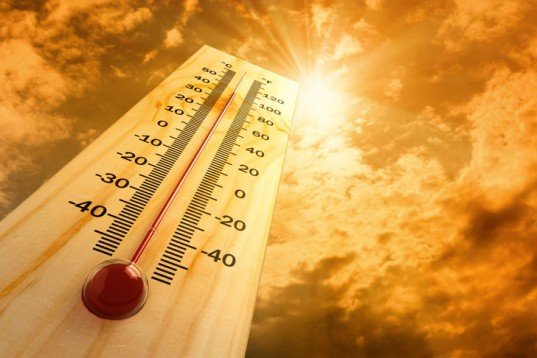2014 is in the running to be the warmest year globally since records began, early estimates show.
In the first 10 months of 2014, global average air temperature was about 0.57 Celsius above the long-term average.
The global figures come in estimates from the UN’s World Meteorological Organization (WMO).
If this year’s current global trend continues for the next two months, the previous record years of 1998, 2005 and 2010 will be overtaken by a narrow margin.
The Secretary-General of the WMO, Michel Jarraud, said the preliminary data for 2014 was “consistent with what we expect from a changing climate.”
In comments released with the new figures, he said: “The provisional information for 2014 means that fourteen of the fifteen warmest years on record have all occurred in the 21st century.”
Michel Jarraud highlighted the impacts of the weather extremes.
“Record-breaking heat combined with torrential rainfall and floods destroyed livelihoods and ruined lives. What is particularly unusual and alarming this year are the high temperatures of vast areas of the ocean surface, including in the northern hemisphere.”
He asserted that the new figures confirm the key trend in climate change: “There is no standstill in global warming.”
This is a reference to the hotly-debated “pause” in global warming which has seen no major increases in temperature since 1998.
The provisional record for 2014 is only slightly higher than for the previous record year of 2010 – one-hundredth of a degree – which was 0.56C above the long0-term average.
However, climate scientists point out that all but one of the warmest 15 years have come in this century.
This suggests that although there have been no big jumps in temperature in the past 16 years, the period as a whole is proving to be exceptionally warm.
The waters of the eastern Pacific are among those to have warmed significantly – a situation which might normally be expected to trigger so-called El Nino conditions that often boost global warmth. However, puzzlingly for scientists, these have yet to materialize.
If 2014 does prove to set a new record for global average temperatures, it will have been without the warming contribution of an El Nino.
The WMO figures say that although “one warm year does not necessarily say anything about long-term climate change” new research shows how human influence made record temperatures more likely.
The WMO report on the state of the global climate is published every year to coincide with the UN’s annual negotiations on climate change, this time under way in Lima in Peru.
